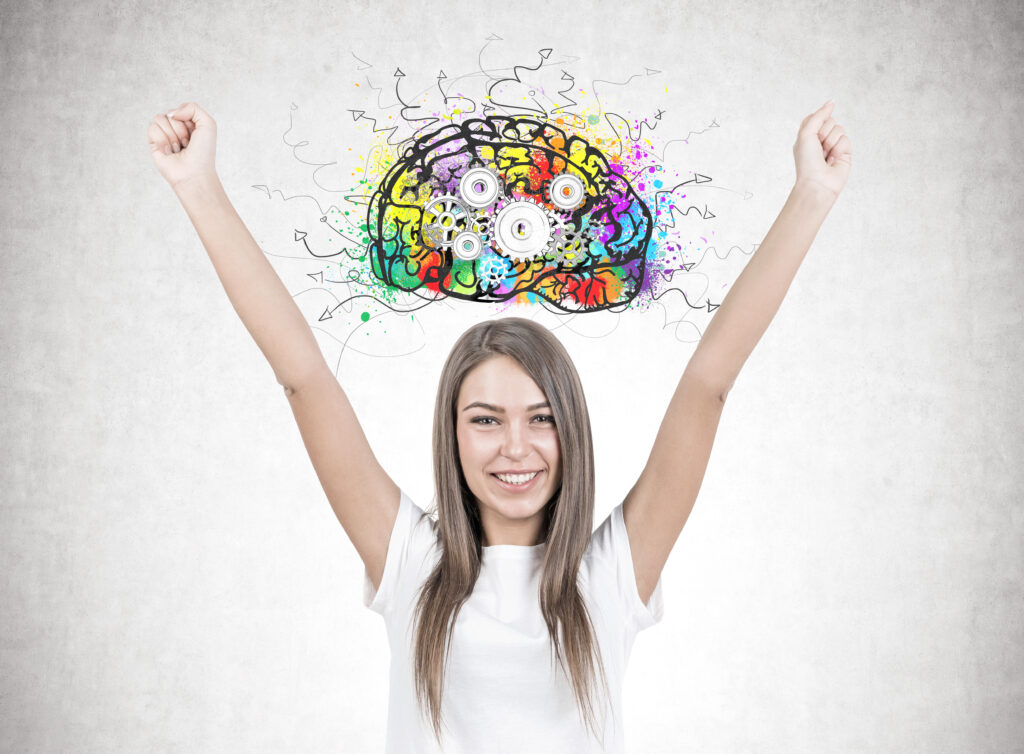Nurturing Brilliance: Celebrating Women’s Brain Health Day

Each year, December 2nd marks a significant occasion – Women’s Brain Health Day. This observance is a powerful reminder of the importance of brain health in women’s lives and the unique challenges and opportunities that women encounter in their journey towards mental well-being. In this blog post, we’ll delve into the significance of Women’s Brain Health Day and explore how we can support and empower women in maintaining healthy minds.
Understanding the Essence of Women’s Brain Health Day:
Women’s Brain Health Day serves as a reminder and a call to action for several key objectives:
1. Gender-Specific Challenges: It highlights the distinct aspects of brain health that women experience, recognizing the unique challenges and vulnerabilities they face throughout their lives.
2. Knowledge and Awareness: The day promotes knowledge and awareness about brain health, encouraging a deeper understanding of how lifestyle choices and healthcare decisions can influence cognitive function.
3. Empowerment: Women’s Brain Health Day empowers women with the information and tools they need to prioritize their mental health, make informed decisions, and take charge of their well-being.
4. Research and Advocacy: It provides a platform to advocate for further research into gender-related brain health issues and advances the cause of equity in healthcare access.
Key Aspects of Women’s Brain Health:
- Hormonal Changes: Women undergo significant hormonal fluctuations, from puberty to menopause, which can impact brain health, mood, and cognitive function.
- Mental Health: Women are more likely to experience conditions like depression and anxiety, influencing their brain health. Early identification and appropriate treatment are crucial.
- Nutrition and Exercise: A balanced diet and regular physical activity play a pivotal role in women’s brain health. Proper nutrition and exercise can help prevent cognitive decline and promote overall well-being.
- Cognitive Aging: Women may encounter unique challenges in cognitive aging, including a higher risk of Alzheimer’s disease. Understanding these risks and staying mentally active can help mitigate them.
- Supportive Networks: Building and sustaining social connections is a fundamental aspect of women’s brain health. Social engagement can combat isolation and enhance cognitive function.
Taking Action on Women’s Brain Health Day:
- Education: Invest time in educating yourself and others about the distinct facets of women’s brain health. Share knowledge and resources within your community.
- Self-Care: Prioritize self-care, encompassing a healthy lifestyle, stress management, and regular check-ups. Promptly address mental health issues and seek support when needed.
- Advocacy: Support organizations and initiatives that center on women’s brain health and mental well-being. Advocate for gender-inclusive research and healthcare practices.
- Community Engagement: Engage in local events and discussions concerning brain health and mental well-being. Connect with organizations that promote these causes.
- Sharing Stories: Encourage women to share their experiences with brain health and mental well-being to reduce stigma and foster supportive networks.
Conclusion:
Women’s Brain Health Day is an annual reminder of the critical significance of recognizing and addressing the unique elements of brain health that impact women’s lives. By promoting education, self-care, advocacy, community engagement, and shared experiences, we empower women to prioritize their mental well-being and lead healthier, more fulfilling lives. Together, we can create a world where women’s brain health is a fundamental component of overall health and well-being, nurturing brilliance in every woman’s mind.
